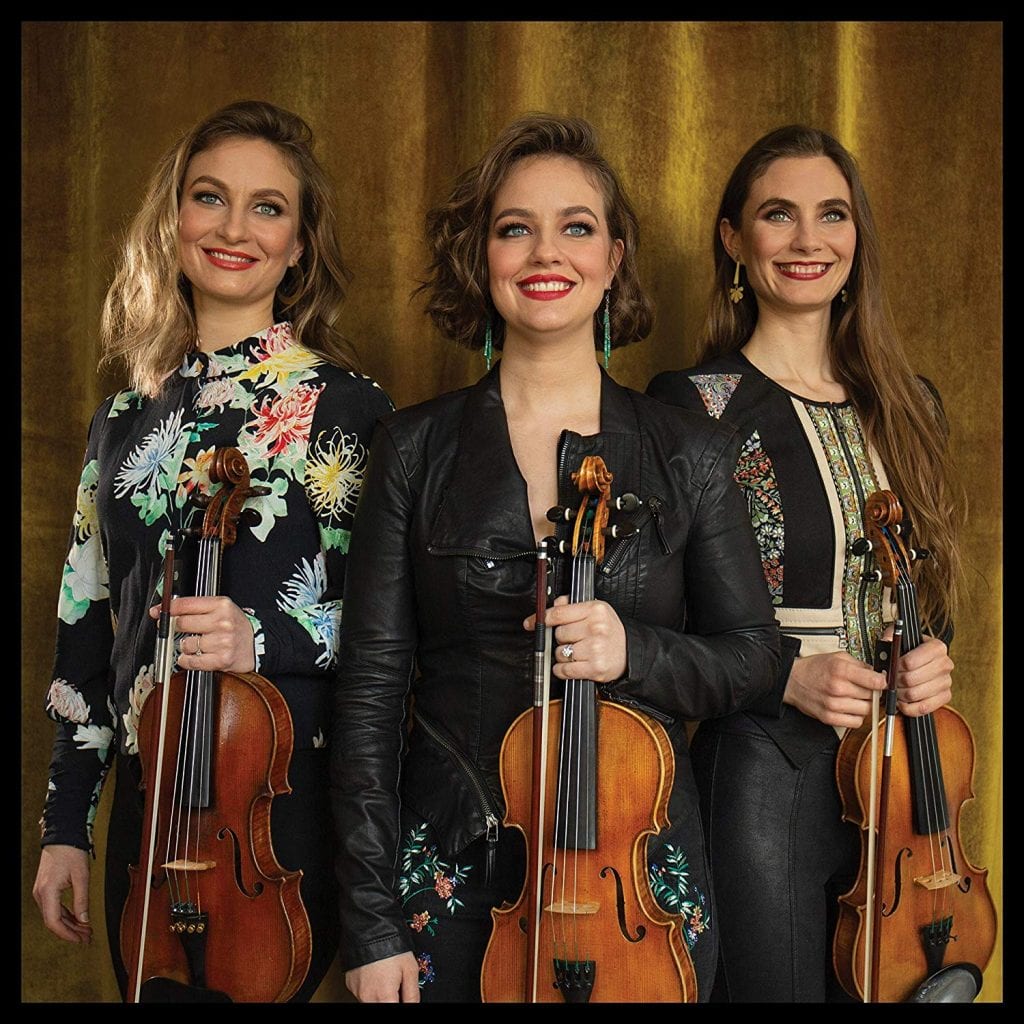The Quebe Sisters Bring Western Swing into a New Era

As the namesakes and driving forces of The Quebe Sisters, fiddle-playing siblings Grace, Hulda, and Sophia deserve ample credit for pushing western swing into the 21st century. That’s not to paint the Dallas-based five-piece as a yet another Bob Wills & His Texas Playboys or Asleep at the Wheel tribute act. While the group certainly honors its home-state heroes at times, the songs on their self-titled fourth album look beyond the dancehalls for inspirations from back when Wills reigned as the king of Texas music.
At times, the sisters’ interlocking voices set the band apart from the typical western swing outfit. For example, the three-part blood harmonies on throwback pop-meets-western tracks “Lonesome Road” and “Summer of Roses” make it sound like The Andrews Sisters wandered onto Gene Autry’s Radio Ranch.
When things sound more beholden to country music, as heard on “Pierce the Blue” and “Twilight on the Trail,” the blend of regional twang and jazz precision points to the studio creations of Patsy Cline and Willie Nelson — the two textbook examples of how artists outside of western swing bands kept alive the crossover between Jimmie Rodgers’ songs for everyday people and Count Basie’s much more sophisticated vision as a band leader.
Even when the country storytelling and jazz-caliber musicianship on “My Love, My Life, My Friend” and “Always Seem to Get Things Wrong” stick closer to the old western swing formula, the sisters’ distinct yet inter-locking vocals add something new to a time-tested offshoot of both hillbilly and high-brow music.
Two instrumental tracks, “Load at 7 (Leave at 8)” and “Bluegrass in the Backwoods,” push the triple-fiddle arrangements to the forefront of white-hot stompers sure to leave many modern stringbands and bluegrass groups green with envy.
Whether you’ve listened to Wills’ records for decades or just discovered him through Ken Burns’ Country Music docu-series, please note that western swing continues to survive, thrive, and evolve as it enters its 10th decade. For proof of its current vitality and pliability, look no further than The Quebe Sisters’ latest album.


